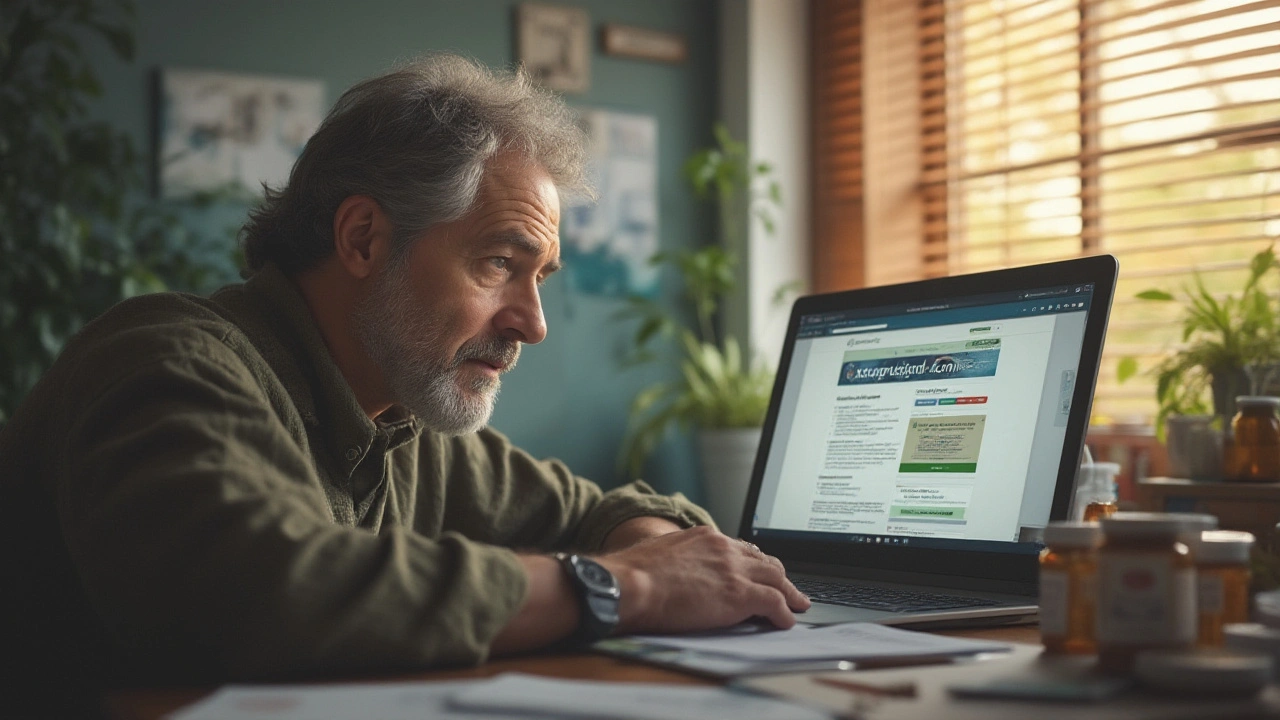Pharmacy Safety: Simple Ways to Shop Securely and Protect Your Health
Buying meds online can save time and money, but it also opens doors to scams, counterfeit pills, and dangerous interactions. How do you know you’re dealing with a trustworthy pharmacy? Below are down‑to‑earth steps you can take right now to keep your prescriptions safe.
Spot a Legitimate Online Pharmacy
First, check for a physical address and a licensed pharmacist’s contact info. Real pharmacies display a license number that you can verify on your country's health authority website. Look for https:// in the URL and a padlock icon—these show the site encrypts your data.
A quick Google search of the pharmacy’s name plus “reviews” or “scam” can reveal red flags. If you see lots of complaints about missing orders, wrong dosages, or unresponsive support, walk away.
Verify the Medication Before You Buy
Read the product page carefully. It should list the generic name, dosage form, strength, and any required prescriptions. If a site offers prescription‑only drugs without asking for a doctor’s note, that’s a major warning sign.
Cross‑check the drug’s appearance using resources like the FDA’s Drugs@FDA database or reputable health sites. For example, if you’re looking at Montelukast tablets, compare the imprint code and color to official images. This simple step helps you avoid fake versions that may contain harmful fillers.
When you’ve found a trusted source, keep a copy of the prescription and the pharmacy’s receipt. If something feels off—unexpected side effects, unusual packaging—contact your doctor immediately.
Safety Tips for Specific Medicines
Some drugs need extra caution. Albendazole, often used for parasite infections, can be safe in pregnancy only under strict medical supervision. If you’re pregnant and a pharmacist offers Albendazole over the counter, ask for a doctor’s confirmation.
Asthma medications like Quibron‑T (theophylline) require precise dosing. Buying them from a dubious site could mean you get the wrong strength, leading to heart rhythm problems. Always double‑check the label against your prescription.
For chronic conditions such as ADHD, drugs like Strattera (atomoxetine) have strict dosing schedules. An unknown online seller might send you a month’s supply that’s too high, raising the risk of side effects like insomnia or mood swings.
Protect Your Personal Data
Never share your full credit card number via email. Reputable pharmacies use encrypted checkout pages and will never ask for your CVV after you’ve entered it. Consider using a virtual credit card or a payment service that masks your details.
Enable two‑factor authentication on any account you create with the pharmacy. If the site gets hacked, this extra layer can stop thieves from stealing your prescription history.
When in Doubt, Call Your Doctor or Pharmacist
Before you finalize any purchase, run the medication name by your healthcare provider. They can confirm whether the dosage matches your treatment plan and whether the drug interacts with anything else you’re taking.
Remember, a legitimate pharmacy will gladly answer questions about their licensing, product sourcing, and safety protocols. If they dodge the conversation, it’s a clear sign to walk away.
Staying safe while ordering meds online is all about doing a few quick checks: verify the license, confirm the drug’s details, protect your payment info, and keep your doctor in the loop. Follow these steps and you’ll enjoy the convenience of online shopping without compromising your health.
